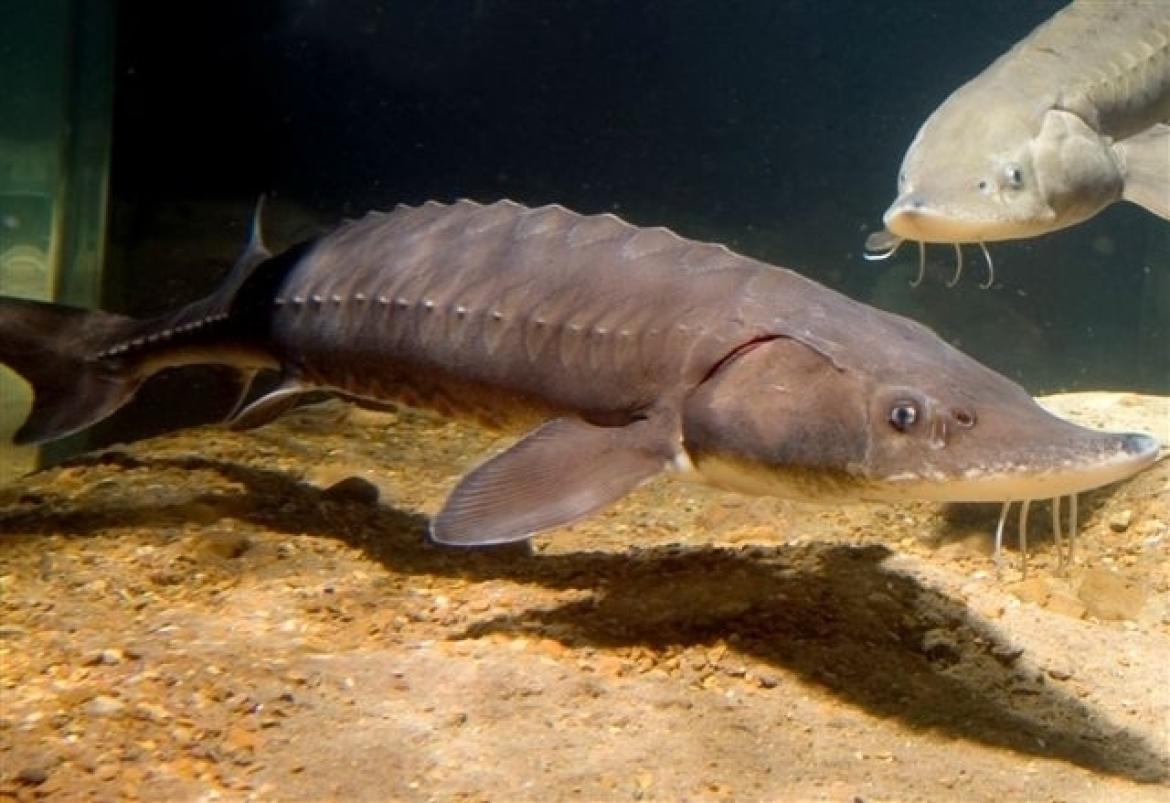
An overview of the world fisheries and aquaculture production is the topic of a free Science & Technology lecture at VIU’s Nanaimo campus on Wednesday, Jan. 28 from 7 to 8 pm.
January 28, 2015 - 12:30pm
Dr. Donald Noakes, the new Dean of Science at Vancouver Island University (VIU) will provide an overview of the world fisheries and aquaculture production and discuss its global importance and development in a free Science & Technology lecture at VIU’s Nanaimo campus on Wednesday, Jan. 28, from 7 to 8 pm in Room 109, Building 356, 900 Fifth Street.
Please note that the speaker for tonight’s lecture has changed from the original schedule released in early January.
The Science and Technology Lecture Series is a free lecture series open to the public. It is held each Wednesday from 7 to 8 pm.
Dr. Noakes will discuss how fish is an important source of animal protein providing 4.2 billion people with about 15 percent of their average annual per capita intake.
In 2010, that represented approximately 18.6 kiligrams of fish per person, which is more than double the per capita consumption of fish in 1960s. Demand for fish for human consumption is expected to substantially increase in the future given its economic and health benefits and this will be further compounded by population growth.
Today, about half of the fish consumed by humans is the product of some form of aquaculture and the relative and absolute contribution of this important sector will only increase in the future. Production from all capture fisheries increased steadily from about 18 million tons in early 1950s until the early 1990s when the annual production levelled off at approximately 90 million tons.
In 2010, world aquaculture production reached 59.9 million tons for fish, shellfish and invertebrates with an additional 19 million tons of aquatic plants. Globally, aquaculture production is currently growing at a rate of about five percent per year.
In 2008 there were about 44.4 million people directly engaged in fisheries and aquaculture work (with indirect employment in the order of 130 million) compared to 16.7 million people directly employed in 1980. Since 2000, all of the new net job production in the fisheries and aquaculture sector has been in the aquaculture industry primarily in rural communities in developing countries where they have resulted in enormous local and regional social and economic benefits. Diversification and technological advances have and will continue to support development in this important food sector.
Dr. Noakes completed his PhD in Systems Design Engineering from the University of Waterloo in 1985 and worked for Fisheries and Oceans Canada for 19 years including 10 years as Director of the Pacific Biological Station in Nanaimo.
Prior to joining Vancouver Island University as the Dean, Faculty of Science and Technology, Dr. Noakes was Dean of Advanced Technologies and Mathematics and Professor - Department of Mathematics and Statistics at Thompson Rivers University in Kamloops, BC. He has published extensively in the fields of fisheries science and water resources and has expertise in statistical analysis, mathematical modeling, fisheries population dynamics, climate change, and fisheries management and policy.
In addition to leading and directing large complex science organizations, Dr. Noakes has acted as scientific advisory to a number of fisheries and marine science organizations and is Editor-in-Chief of the journal Marine and Coastal Fisheries. He is a licenced professional engineer in British Columbia and Ontario, a member of the Institute of Electrical and Electronic Engineers and American Fisheries Society, and Fellow of the American Institute of Fisheries Research Biologists. Dr. Noakes has also received a number of prestigious awards including the University of Waterloo, Faculty of Engineering Alumni Achievement Medal, the Government of Canada Science Award to Leaders in Sustainable Development, and the Queen’s Golden Jubilee Medal.
For more information on the Science & Technology lecture series, please visit https://web.viu.ca/simmsw/
Tags: In the Community






